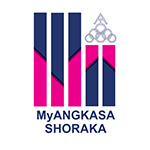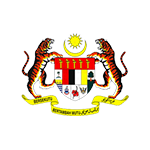ALL UTLIZATION OF FUNDS WILL BE ON SHARIAH-COMPLIANT ACTIVITIES AND PRODUCTS. WRITTEN APPROVAL FROM SHARIAH ADVISER IS REQUIRED FOR EACH OF THE ACTIVITIES AND PRODUCTS BEFORE THE FUNDS COULD BE UTILIZED.
What do we do
MyAngkasa Shoraka advises co-operatives and its subsidiaries on general business management and provides Shariah advisory services. The services include:
- Advising on financial management which include assisting the clients on maximizing the usage of their existing funds for their operations or expansions;
- Assisting clients in general corporate exercise which include but not limited to restructuring, merger and acquisitions;
- Facilitating business ventures outside of Malaysia; and
- Providing Shariah advisory services.
MyAngkasa Shoraka provides alternative commercial financing products to other MHSB’s subsidiaries and all co-operatives in Malaysia where they gain the appropriate exposure to investment opportunities for achievement of their financial goals.
Factoring is a range of services rendered to suppliers of goods trading on credit terms and based on financing term against assignment of the underlying trade receivables.
With the help of factoring, cash cycle can be significantly shortened. This makes it possible to operate faster and more efficient. For non-recourse factoring, the factor takes on the risk of unpaid invoices. This offers a protection against any bad debts.
The factor takes over the management of business’ invoices and they handle customer payments and debt collections. Factoring advances may be reflected in supplier’s balance sheet as proceeds from sales rather than an attracted loan what improves the balance sheet.
Malaysia is one of the active markets in factoring sector as it has a developing factoring market with low entrance barriers and thus giving Malaysia a great potential for domestic receivables financing.

According to McKinsey’s Global Private Markets Review 2020, private market assets under management grew by 10% in 2019, and an impressive USD4.0 trillion in the past decade, registering a total of 170% growth. In contrast, global public markets grew by 100% but the number of publicly listed companies have remained largely flat, down by 40% since 2000.
PE transaction deal sizes in ASEAN aggregated to USD52.2 billion since 2009, almost doubling from USD1.8 billion in 2009 to USD3.4 billion in 2018, driven by the region’s growing youth population, rising wealth and digitalisation of its economies. In recent years, Malaysia’s contribution to the deal count has been sizeable, though from a deal size perspective, Malaysia is not considered a consistent contributor of large, sizeable deals.
However, its consistent posting of an annual deal total of between 10 to 12 deals since 2010, signals to the market that there are good investment opportunities within the country. This growth has been rapid – from a nascent PE market where deals happened sporadically in pre-2010, to a vibrant one with diversified participants supported by a sustained frequency of deals.
One of the targeted activities within this sector is Re-ArRahnu which involves purchasing of gold and promise to sell back with the objective to provide liquidity to the co-operatives requiring ArRahnu services. However, the Re-ArRahnu business is subjected to the obtaining of the necessary licensing/regulatory approvals, if any.
ArRahnu
In Malaysia, pawn broking is governed by the Pawnbrokers Act 1972. This Act outlines all the necessary guidelines and principles that have to be adhered by both the pawnbroker and client.
The establishment of Islamic pawnshops was initiated in the East Coast states of Peninsula Malaysia simply because these states have the largest concentration of Malays and Muslims. The Malaysian Islamic Economic Development Foundation (YPEIM) was the first to suggest the introduction of Ar-rahnu concept. Soon, the first Islamic pawn broking institution was established by the Majlis Agama Islam or Islamic Religion Council by the Kelantan state government in January 1992.
In 1993, Bank Negara Malaysia introduced a scheme known as “Skim Ar-rahnu” along with the Malaysian Islamic Economic Development Foundation and Bank Kerjasama Rakyat Malaysia Berhad and the ArRahnu scheme was then launched at 6 branches of Bank Rakyat Malaysia in the same year.
It was reported that in 2004 the number of Ar-rahnu clients stood at 1.22 million with an accumulated loan amounting to RM1.17 billion.
(Source: ABAC Malaysia, 2008)
Despite the availability and accessibility of illegal money lenders, banks for personal loans and also conventional pawn broking facilities, the growth of Islamic pawn broking facilities seems to have taken firmer inroads in the highly regulated and diverse financial market.
This is evident as the Ar-rahnu concept has been introduced in many Islamic banks and state owned banks such as the Agro Bank in Malaysia. The Islamic pawn broking division in Bank Rakyat started with only 5 outlets in 1993; by 2003 it has grown to 106 outlets operating successfully in all over the country.
Since the introduction of ArRahnu scheme in 1993, Bank Rakyat Malaysia alone has advanced RM844 millions up to September 2002 involving nearly 888,000 Ar- Rahnu account holders. By December 2001, the total accumulative safekeeping earned was RM44.37 million (since inception). The annual reports of 2001 and 2002 revealed that the Ar-rahnu financing and advances were RM81.165 million and RM119.805 million respectively. The deposits from Ar-rahnu fund in 2001 and 2002 were amounting to RM38.223 million and RM35.223 million respectively. The total expenditure with regards to the scheme was RM3.330 million and RM3.324 million respectively.
(Source: Annual Report of Bank Rakyat, 2001 & 2002)
ArRahnu sector is expected to continue growing consistently due to the following reasons:
- There is scarcity for credit especially for consumption purposes. Islamic pawn broking adheres to Shariah principles. This attracts the Muslim community to place their collateral items in exchange for credit facilities.
- Unlike financial institutions, pawnbrokers do not question the purpose for which credit is sought. Financial institutions require pages of information, business projection income statement (if for business purpose), guarantor and many other strict requirements.
- Islamic pawn broking (like the conventional pawn broking) does not set restrictions or stipulations on the manner in which the fund has to be used.
- There are no extra fees or charges like stamp duty or legal fees.
- The process is immediate because as soon as the collateral items are verified, money is granted to the borrower. The normal waiting period is less than 30 minutes.
- In comparison to other sources of informal credit, example money lenders and conventional pawn brokers who may charge interest from 2 – 20% per month, Islamic pawn brokers are relatively very cheap where the charges are usually about 1percent per month.
- No other financial institutions (other than conventional pawn brokers) will provide credit for the type of collateral held by the customers.
- The credit can be used for long term purpose, since as long as the safekeeping fees are fully paid, the duration of the credit can be extended indefinitely.




